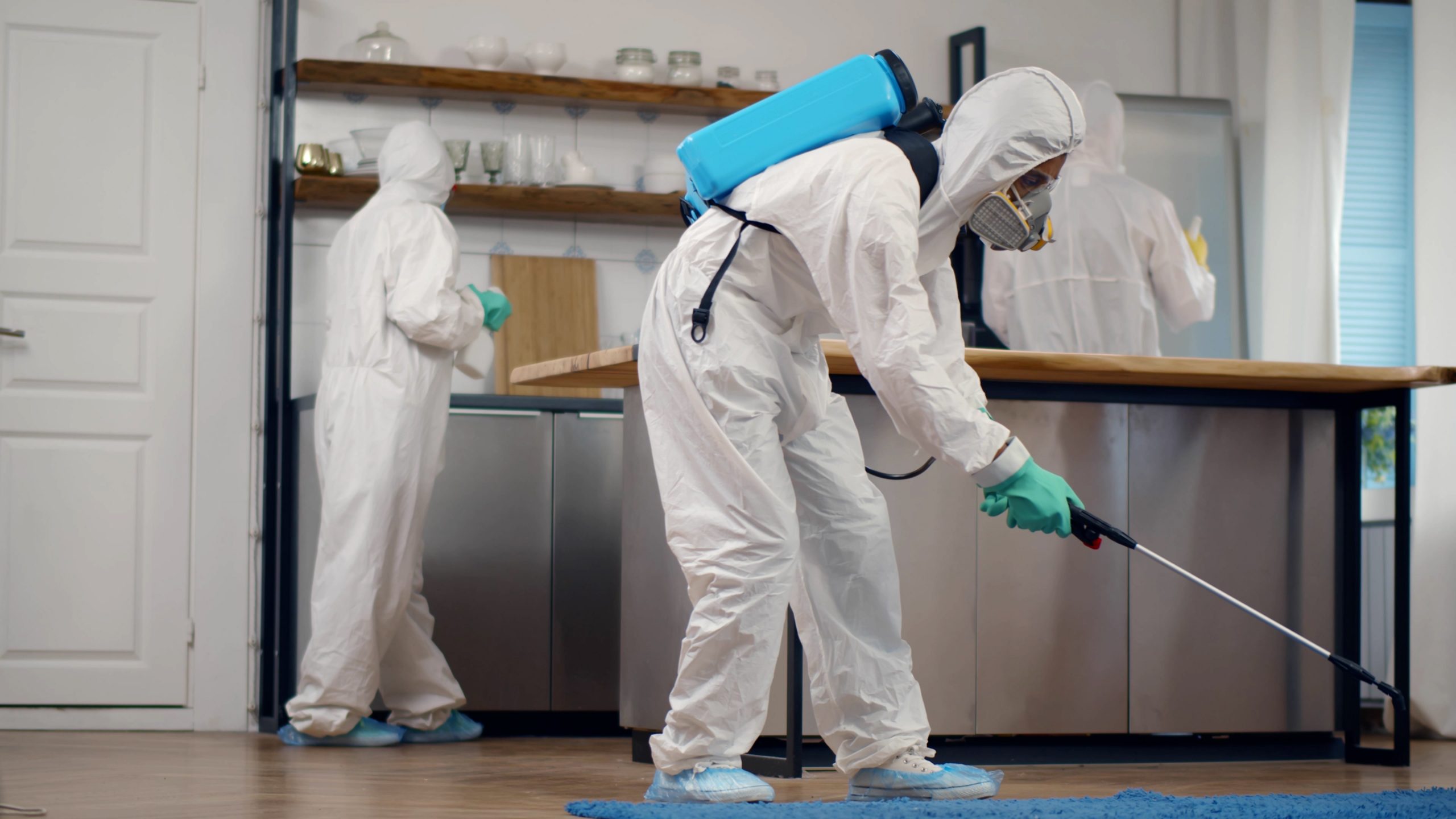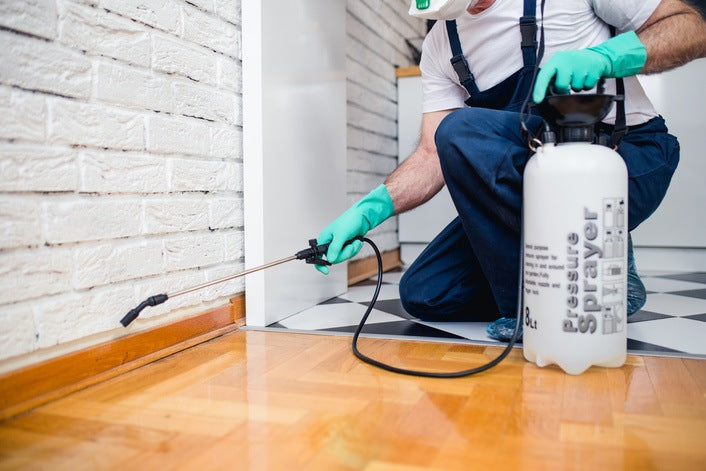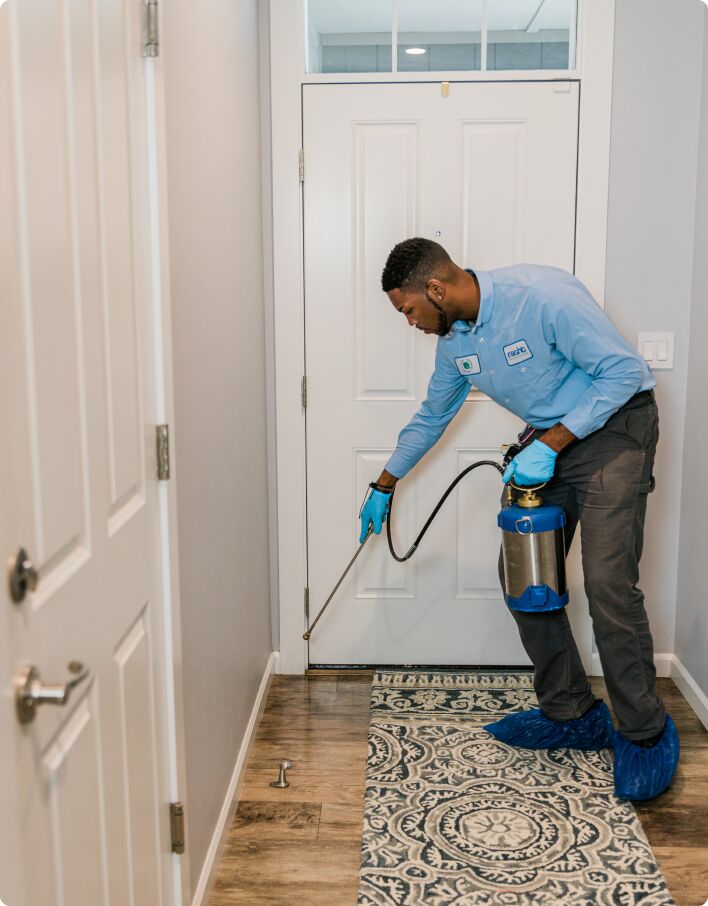Fighting Pests in Orem: Trust Fund Our Pest Control Services for Satisfaction
Discovering the Different Types of Pest Control Techniques and Their Applications
Bug control is an essential aspect of keeping a secure and healthy and balanced atmosphere, whether it be in residential, commercial, or agricultural setups. From chemical methods that target particular pests to organic approaches that harness natural killers, the world of bug control is diverse and vast.
Chemical Insect Control Strategies
Chemical parasite control techniques are widely made use of in agriculture and insect management to efficiently eliminate or regulate pest infestations. These methods involve the use of chemical compounds, such as pesticides, herbicides, and insecticides, to decrease or get rid of insect populations that pose a threat to plants, animals, or human wellness.
While chemical insect control techniques can be highly reliable in taking care of insect populations, they likewise increase problems regarding possible environmental and health dangers. It is important to comply with safety guidelines, use incorporated pest management methods, and think about different methods to minimize the adverse effects of chemical insect control strategies.
Biological Insect Control Methods
 Biological insect control techniques use living microorganisms to handle and decrease parasite populaces in a lasting and ecologically friendly fashion. This method includes presenting all-natural predators, parasites, or pathogens to control parasites without the demand for artificial chemicals. One typical technique is the launch of ladybugs to combat aphids in yards, as ladybugs are all-natural killers of these devastating parasites. Another instance is making use of Bacillus thuringiensis (Bt), a germs that creates toxic substances dangerous to specific insect larvae, to regulate insects and caterpillars.
Biological insect control techniques use living microorganisms to handle and decrease parasite populaces in a lasting and ecologically friendly fashion. This method includes presenting all-natural predators, parasites, or pathogens to control parasites without the demand for artificial chemicals. One typical technique is the launch of ladybugs to combat aphids in yards, as ladybugs are all-natural killers of these devastating parasites. Another instance is making use of Bacillus thuringiensis (Bt), a germs that creates toxic substances dangerous to specific insect larvae, to regulate insects and caterpillars. 
Biological parasite control approaches use numerous advantages over chemical techniques. They are generally safer for the environment, as they do not leave hazardous deposits or add to contamination. Furthermore, these methods are typically extra targeted, affecting only the parasite varieties without hurting helpful bugs or other organisms. Furthermore, biological control can be a long-lasting remedy, as the introduced microorganisms can establish sustainable populaces and supply continuous parasite monitoring. In general, organic bug control methods present a all-natural and reliable option to typical chemical therapies, advertising a well balanced community and healthier settings.
Physical Pest Control Approaches
Making use of physical methods to regulate pests includes the usage of non-chemical or mechanical methods to take care of and reduce bug infestations properly. One common physical bug control approach is the installation of nets, fencings, or displays to obstruct parasites from getting in specific locations.
An additional physical approach is using traps, such as snap catches for rats or scent traps for insects. These catches purpose to catch pests without posing any kind of danger to people or the setting. Additionally, physical control techniques can include techniques like handpicking parasites off plants, using vacuum devices to get rid of pests, or employing heat treatments to get rid of bed bugs and other insects in ravaged areas.
Integrated Pest Management Techniques
Carrying out an all natural method to pest monitoring, Integrated Insect Management (IPM) approaches intend to combine different effective strategies to control and avoid parasite problems while decreasing environmental effect and guaranteeing lasting pest control methods. IPM involves the assimilation of multiple control techniques such as biological control, social practices, mechanical control, and the cautious use chemicals.

Furthermore, IPM stresses the relevance of surveillance and analyzing pest populaces to determine one of the most proper control approaches. By executing IPM you can try here strategies, insect control efforts become more targeted and efficient, minimizing the risks related to extreme pesticide usage and promoting long-lasting insect administration solutions.
All-natural and Organic Pest Control Options

One popular organic parasite control approach is neem oil, stemmed from the seeds of the neem tree, which works as a repellent and interrupts the growth and advancement of insects. Diatomaceous planet, an all-natural silica-based powder, is an additional reliable organic bug control option that works by dehydrating insects upon contact. By incorporating natural and natural pest control options into bug administration approaches, people can successfully control parasites while minimizing damage to the atmosphere and advertising sustainable methods.
Verdict
Finally, various insect control methods such as chemical, biological, Home Page physical, integrated bug administration, and all-natural alternatives are readily available for effectively managing parasite infestations. Each method has its very own advantages and applications relying on the sort of parasite and the atmosphere. By comprehending the various kinds of bug control techniques and their applications, people can make informed decisions on one of the most appropriate technique to regulate bugs and shield their home.
Chemical insect control strategies are commonly used in agriculture and bug monitoring to efficiently get rid of or control pest problems - Orem Pest Control. All-natural bug control techniques include utilizing organic control representatives, such as parasites or killers, to take check over here care of parasite populations. By incorporating all-natural and organic bug control alternatives into insect management techniques, individuals can properly control pests while decreasing injury to the atmosphere and advertising lasting techniques
In final thought, different bug control techniques such as chemical, organic, physical, incorporated pest management, and all-natural alternatives are available for successfully taking care of bug infestations. By comprehending the different types of pest control strategies and their applications, people can make educated decisions on the most ideal technique to regulate insects and protect their home.